
Culture
16:39, 24-Oct-2017
Henan Province tackles unbalanced distribution of educational resources
By Meng Qingsheng
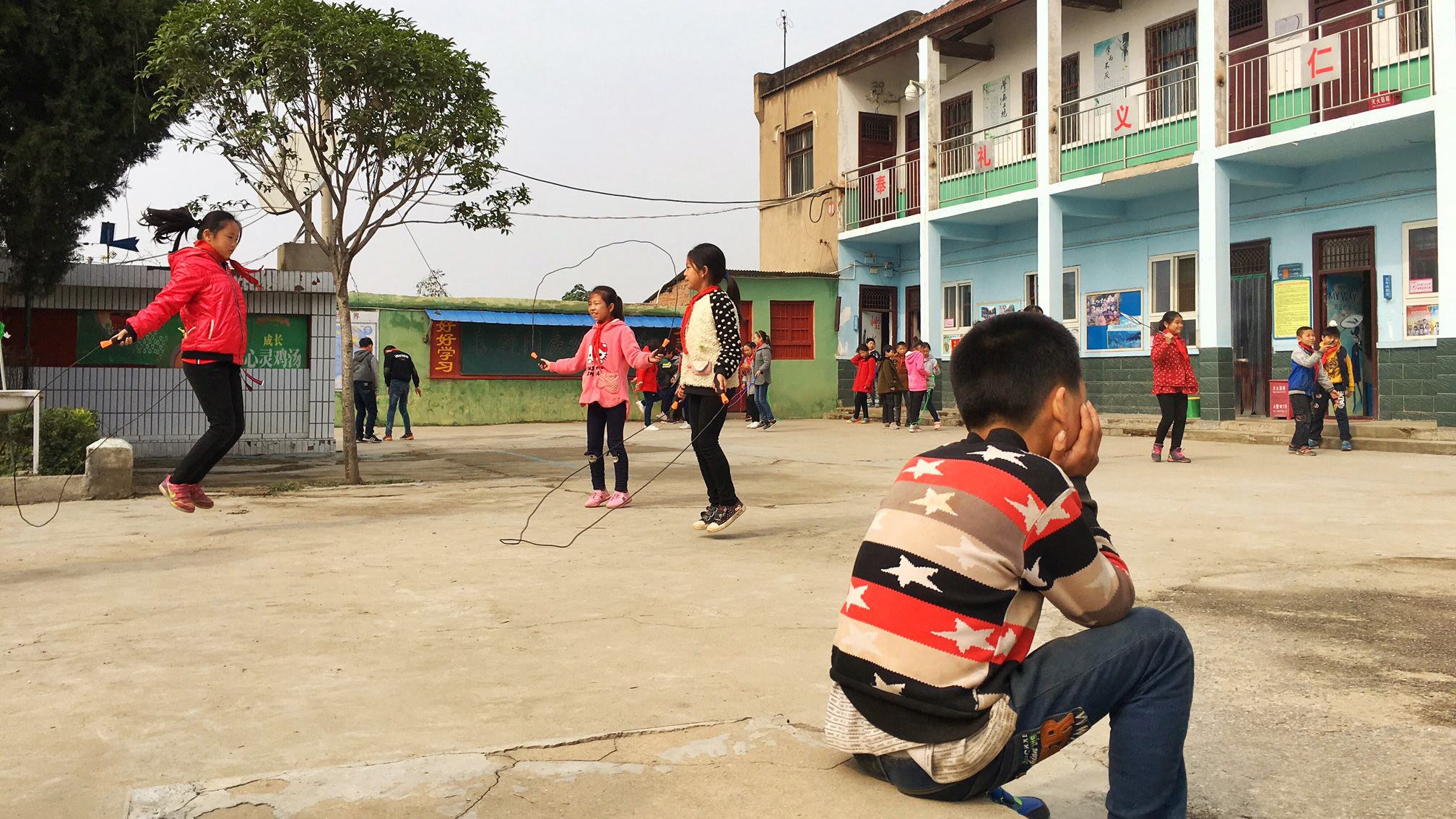
General Secretary Xi Jinping expressed in his report to the 19th Communist Party of China (CPC) National Congress last week that strengthening standards in education was fundamental to China's pursuit of national rejuvenation. He called for particular attention to be given to rural areas, in an effort to address the country's unbalanced development.
CGTN reporter Meng Qingsheng traveled to Henan in central China – China's third most populous province and where the majority live in rural areas – to see how authorities there are trying to overcome this issue.
At Daqiaolu Primary School in downtown Zhengzhou City, two thousand pupils gather to start a new week. They are all looking sharp, dressed neat and tidy - typical of an urban China school. Yet only about a quarter of them are actually from the area - the vast majority of them are only there because the school offers a good education.
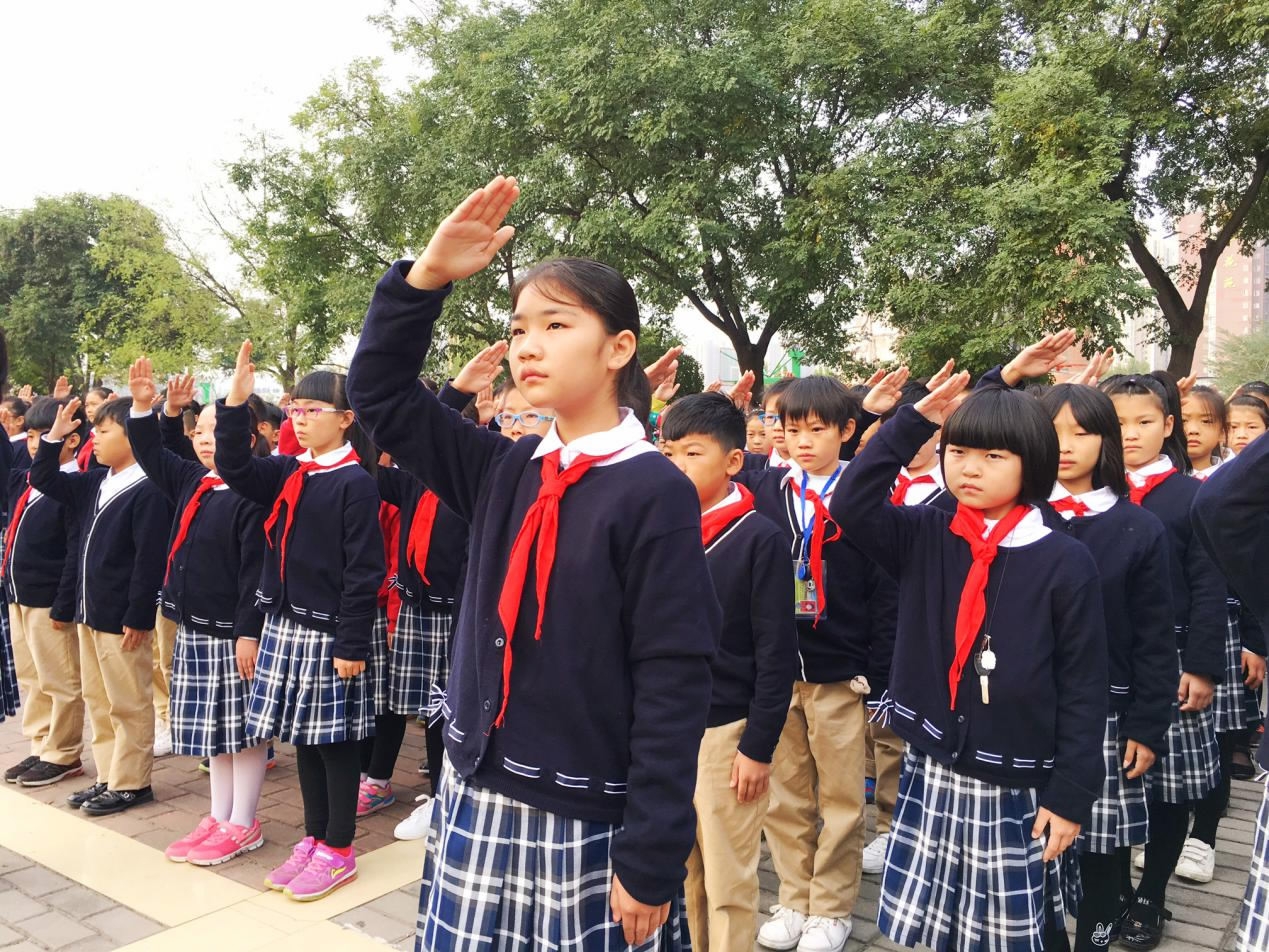
Wang Yifei (C) used to attend an under-resourced village school in Yuzhou City, currently learns at Daqiaolu Primary School in Zhengzhou City. /CGTN Photo
Wang Yifei (C) used to attend an under-resourced village school in Yuzhou City, currently learns at Daqiaolu Primary School in Zhengzhou City. /CGTN Photo
The fifth-grade girl Wang Yifei told CGTN that she got transferred to the school from her village two years ago. She was really impressed by the spacious playground here. This school also offers a number of interesting extra-curricular activities.
Wang continued that when she was at the village school, she had to walk for an hour to attend classes, which were boring and not as interesting as what she learns in Zhengzhou. The road was pretty muddy too, and slippery when it rained.
Now, she's enjoying her new surroundings, and developing her own academic interests thanks to the help of qualified teachers and the inspiring facilities.
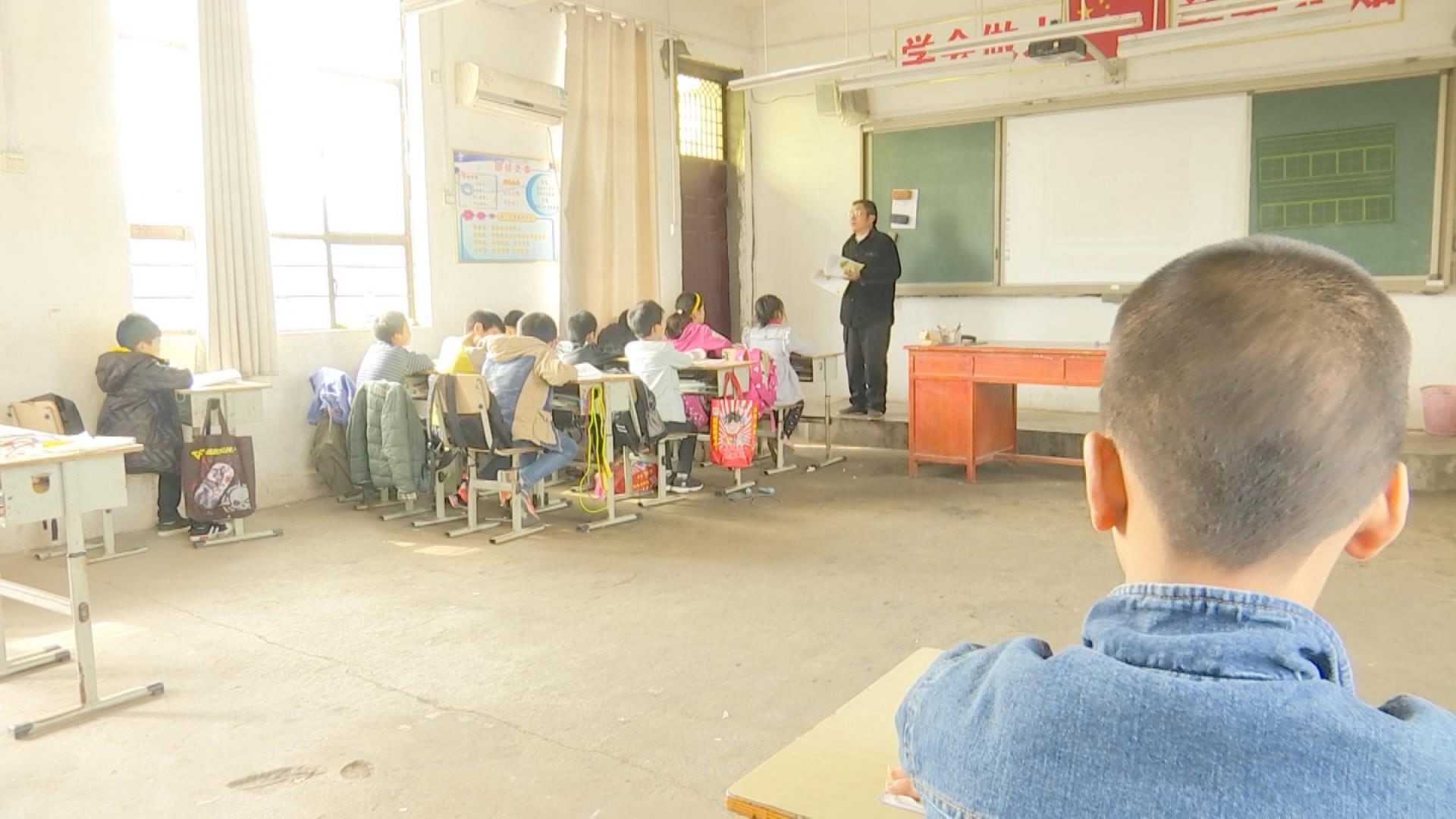
A teacher gives lessons to fifth-grade students at Xugang Primary School, in Xinzheng of Zhengzhou City. /CGTN Photo
A teacher gives lessons to fifth-grade students at Xugang Primary School, in Xinzheng of Zhengzhou City. /CGTN Photo
Headmaster wishes his primary school never disappears
We drove for an hour southward to the county-level city of Xinzheng, and then found our way inside a typical rural primary school - one much like Yifei's old one.
Xugang Primary School was founded in the late 1940s, yet it was only this year that the pupils started learning English - a core subject in China nowadays, and one in which students are later tested in the national college entrance examination. It's just one example of how far the school has fallen behind the national standard.
Headmaster Xu Weicai seemed worried about the future of his primary school. He told CGTN with tearful eyes that no new graduates have come here to teach in the past ten years.
They have only six teachers on the campus, teaching pupils from six different grades. The building needs to be repaired, as the roof leaks during the rainy season. He has been working there for eight years, and has developed a deep fondness for everything.
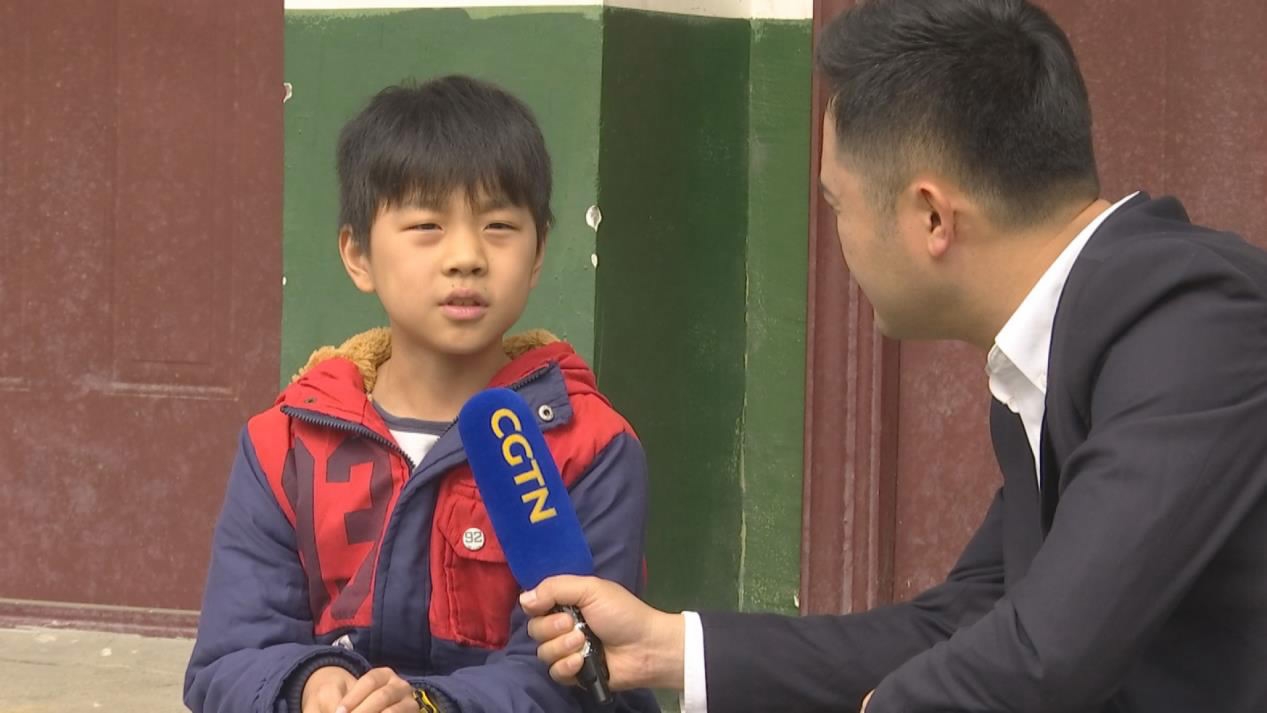
Shi Jingyu (L) hopes to have more teachers working here. His parents are planning to send him a better school in nearby town. / CGTN Photo
Shi Jingyu (L) hopes to have more teachers working here. His parents are planning to send him a better school in nearby town. / CGTN Photo
School boy wishes to have a library at his rural primary school
The school is one of the 20 thousand primary schools in central China's Henan Province. It had 200 pupils in its prime back in 2012, but due to a shortage of teachers, inadequate resources and a canteen unable to meet health and safety standards, more than half the pupils have been taken out by their parents to seek a better school elsewhere.
As the school has no canteen, the pupils have to return home for lunch. But this is only a petty inconvenience for most of those who choose to stay, and they have much greater desires for other improvements.
Shi Jingyu, a nine-year boy in the third grade, said he hopes he can study at a bigger school, with a library, and where fellow students could learn and play together. He emphasized once again that it's better if each of them will focus on just one subject to teach.
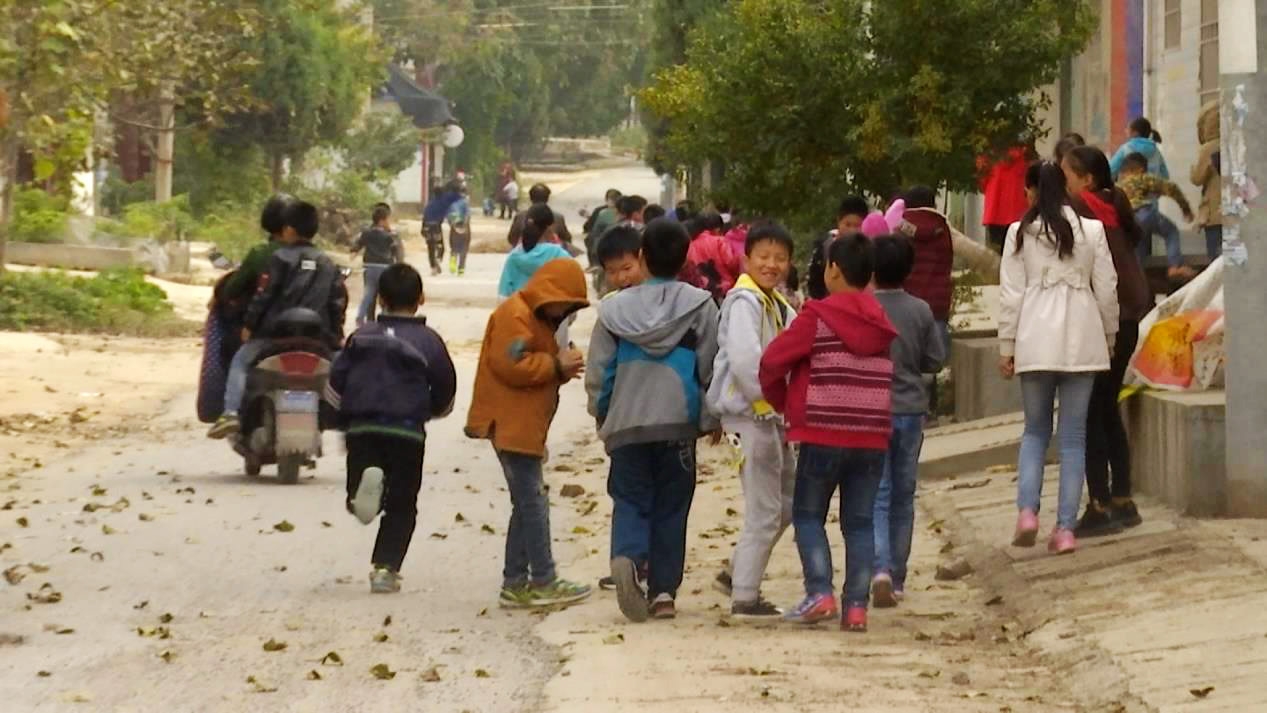
Students at Xuhang Primary School run off after class to their homes. The school has no canteen, and they have to get lunch done out the campus. / CGTN Photo
Students at Xuhang Primary School run off after class to their homes. The school has no canteen, and they have to get lunch done out the campus. / CGTN Photo
China pledges to prioritize education in next step of work
As of the end of last year, the province had injected more than 16 billion yuan into improving the basic facilities and teaching resources of compulsory education schools. However, its education authority believes it's still not enough, and more will need to be done to ensure a fair opportunity for all.
This year, the province recruited three thousand general teachers. They are helping rural children get education close to their homes. Local education authority states that though not all of them can move to the big city for a good education, the department hopes local government can provide them with a fair start to their lives.
China has pledged to prioritize education in its next step of work, and to develop a system that people are satisfied with. While more and more pupils are benefiting from the recent improvements, for the time being, more efforts need to be made to strike a fairer balance in how educational resources are distributed.
621km

SITEMAP
Copyright © 2018 CGTN. Beijing ICP prepared NO.16065310-3
Copyright © 2018 CGTN. Beijing ICP prepared NO.16065310-3